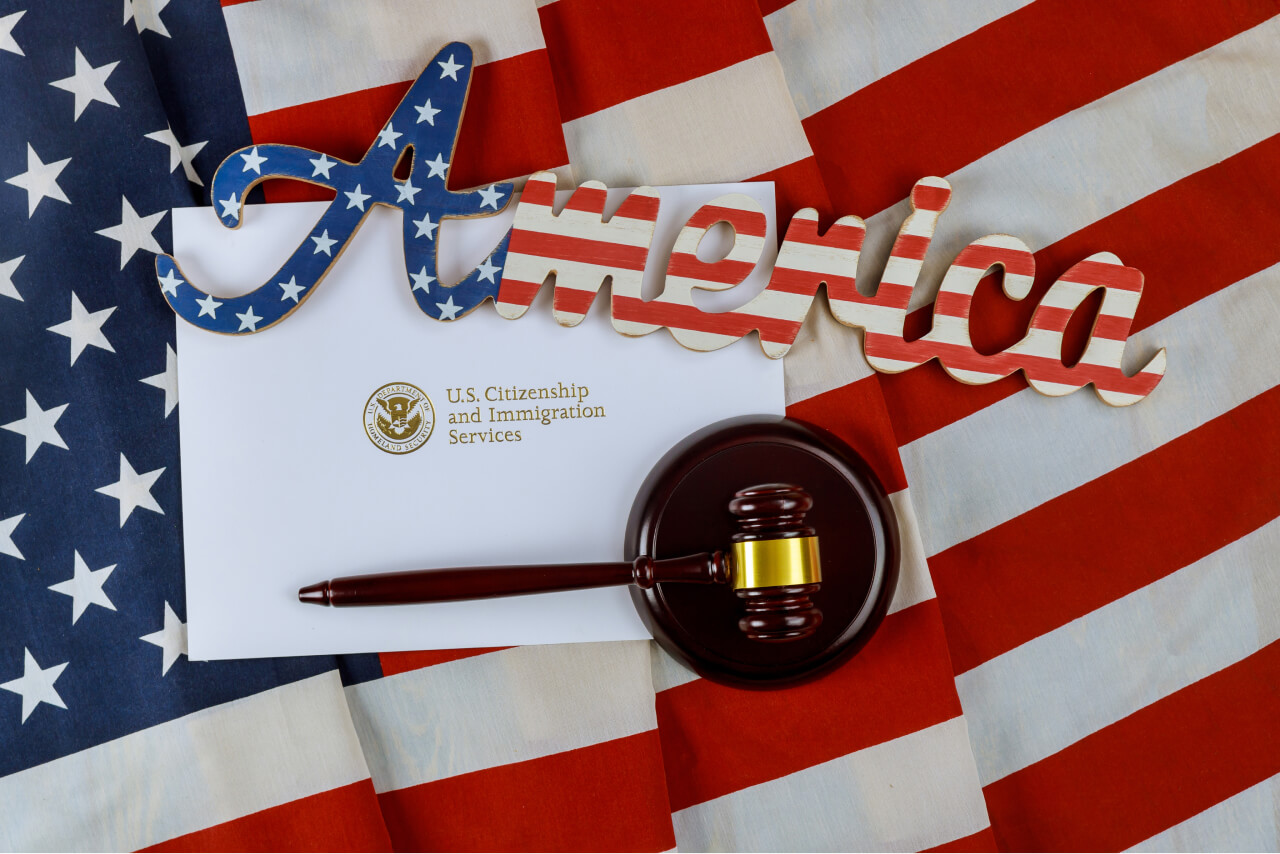The United States Immigration scheme understands that sometimes non-immigrants come to the United States for one purpose, such as to tour the country or to study, but end up wanting to stay and engage in a different activity during their time here. Maybe you get a job offer, or maybe you decide that you want to start a business while you’re here. Whatever the case, changing from one nonimmigrant immigration status to another, is generally a possible thing. The same is also true for changing from one nonimmigrant status to that of an H-1b holder; provided that you can satisfy the requirements. The first factor in determining your general eligibility to change from one non-immigrant status to another (including to an H-1B), is whether or not you were lawfully admitted to the U.S. as a nonimmigrant? If you are undocumented or unauthorized to be here because you didn’t legally enter the U.S., then you will not generally be able to change your status (with a few exceptions). You will instead, generally have to go back to your home country before applying for any Immigration Benefits you might be entitled to. If you are in this situation, it is of great importance that you seek the help of an experienced Immigration Attorney, so that you may know of the potential options available to you, as well as the potential consequences you may face as a result of your undocumented status.
If you were lawfully admitted into the United States, and you are still in a valid legal nonimmigrant status (the date on your I-94 is still valid), this is a good sign. There are however a few other GENERAL factors (we will discuss factors specific to H-1Bs in a bit), to consider, before you can conclude that you are likely eligible to change your status. One of these factors is if you committed a crime, you may be ineligible to change your status depending on the severity of the crime. Another factor is if you worked illegally or did anything else that would have violated the nonimmigrant status you currently have; then you may also be potentially ineligible.
A final general eligibility factor and a very practical consideration is that your passport must be valid for the entire period of time that you request to stay in the U.S., under the new nonimmigrant status that you are seeking. Okay, so if you believe that you meet these general eligibility factors for changing your nonimmigrant status, then that is good news. However, now we have to consider the factors related to changing to an H-1B Status, specifically. The H-1B is an employment-based nonimmigrant visa, and as such you’ll need a job offer to change to this status. You might have figured that this was the case. You probably want the H-1B so that you can work, so this requirement might not be a surprise to you. If you have a University degree, and you have a job offer in the area/field of your degree in the United States, you likely can qualify under this requirement.
Your employer will have to sponsor you for an H-1B Visa and they will have to go through the process and meet the requirements described in our article, How does the H-1B Visa process work? If you haven’t yet read this article, then we highly encourage you to do so, as it outlines the general information and requirements for obtaining an H-1B. If you are unfamiliar with the fact that there are only 65,000 H-1B Visas generally available (with a few exceptions to this limit), for each fiscal year, then you definitely need to read the article referred to above.

Your employer will have to actually petition for the H-1B visa on your behalf, by first obtaining a certified Labor Certification Application, and then by filing a Form I-129, Petition for Nonimmigrant Worker, on your behalf. They will have to make sure to do all of this before your I-94 expires. The Form I-129 is to ensure that you are actually going to be performing work that is eligible for H-1B classification and that you are personally eligible to hold this status. The Form I-129 is not a form unique to H-1B Visas, and your employer (or agent) would have to file this on your behalf, if you were attempting to change your current nonimmigrant status, to ANY OF THE EMPLOYMENT-BASED NONIMMIGRANT VISA CATEGORIES. Just for the sake of knowledge, if you were attempting to change your status from one non-employment-based nonimmigrant visa category to another non-employment-based nonimmigrant visa category, you could self-petition to change your status by filing your own form I-539. Discussing these categories is not the purpose of this article, however. Please note, USCIS recommends that you apply for a change of status to another nonimmigrant category, at least 45 days before your I-94 expires. This is very important to do.
Why?
Well, if your I-94 expires before you apply to change your status, then you will be “out of status” and generally you won’t be eligible to change status (again with a few narrow exceptions).
Why does USCIS recommend you/your employer apply a full 45 days before your I-94 expires?
Well, this is because it can take a while to adjudicate your change of status request. Let’s say you file your petition to change status, only ten days before your I-94 is due to expire. If USCIS does not make a decision in those ten days and your I-94 expires, you will be considered “out of status.” HOWEVER, even though you are technically “out of status,” during this time, you won’t have days of “unlawful presence” counting against you, because you filed a timely request to change your status before your I-94 expired. Even though you would not have unlawful presence counting against you during this time (which would have potential consequences for future admission into the U.S.); while you are awaiting your decision for your change of status request, you are still technically a “removable” alien. USCIS as a matter of discretion, will typically defer all removal proceedings against you until after your petition for change of status is decided, but the Department of Homeland Security could otherwise remove you during this time. Thus, it is extremely important to file your request to change your status early, with enough time to make sure that USCIS will give you a decision before your I-94 expires.
Another important timing factor is one that is directly related to the H-1B Visa. H-1B Visas (with some exceptions) are limited to only 65,000 a year, and because the season for applying for these is for the upcoming fiscal year; and because there is a lot of competition for these limited spots, you really need to apply early when the H-1B Application Window opens–around April 3rd, for the upcoming year. Thus, you really need to coordinate this timing factor with the factor described above and make sure you apply for the H-1B at a time when you’re not only likely to obtain it (by applying early in the H-1B season), but also with plenty of valid time left on your I-94. For more information on this H-1B specific, timing factor, please see our article: How does the H-1B Visa process work?
Changing to an H-1B Visa as a Student (F-1 Student Visa holder):
Well if you are an F-1 Student, then you are probably already aware of what OPT (Optional Practical Training) is. OPT is designed to give foreign students practical experience in the area in which they hold their degrees. It is designed to be an easy option, in order to give foreign students the opportunity to get some work experience to supplement their U.S. education, while they live in the United States. All F-1 students are generally eligible for 12 months of cumulative OPT time, as long as the student has been enrolled full-time for at least one full academic year, at a USCIS-approved educational institution. Any OPT work experience must be directly related to your field of study, can be full-time (common if post-completion OPT), or part-time (up to 20 hours per week), and you have to apply to have the desired OPT work: (1) certified by your Universities’ office for international students; and, (2) approved by USCIS before you can start (the second process can take up to 90 days).

You can apply without a job offer and can start the OPT application process with as many as 90 days before your requested start date for your employment (even if you don’t have a job, yet). You can generally use your 12 months of cumulative OPT work time, either during official school breaks, during the academic year or after you complete your studies. Post-completion OPT is the most common type, because there are often other options for students to work during the school year (such as Curricular Practical Training), so most students will probably want to save their OPT time for after graduation. Post-completion OPT work (after graduation) must be at least 20 hours a week. OPT is flexible and allows students to work anywhere in the U.S., though it’s generally limited to 12 months. If you’re in a STEM field (Science, Technology, Engineering, or Mathematics), you might be eligible for an additional 17-month extension (for a total of 29 months). You do not have to take advantage of your OPT training, and you can actually apply to change your status directly from F-1 to H-1B. However, many F-1 Students find it prudent to take advantage of the OPT program, as it can be hard to find an employer to sponsor H-1B employment, immediately post-graduation.
You get 12 months of OPT after completion of each level of education, so you can kind of use it creatively or “hedge your bets” in some cases. For example, you could apply to use it for the period after graduation from your four-year University Degree program, and you could then use it after graduation to work as an intern or something in your field, while simultaneously applying for Master’s Programs and permanent positions. Thus, you can use the OPT creatively in some cases to buy yourself time, while getting valuable work experience. If you get a good job offer (which would otherwise fulfill the requirements for an H-1B), or you get into a desirable Master’s Program, you could then make a harder decision and apply to change your status accordingly.
You also get 90 days of unemployment on OPT for each educational level (also commutative). Thus, if you apply without a job offer, and you get your EAD (employment authorization document) authorizing OPT, but you don’t yet have a job, that is okay. As long as you find something in 90 days (ideally less), or successfully change your status (let’s say you decide to do a Master’s Program and get accepted), you’ll be okay. If nothing happens for you in those 90 days, however, you’ll have to make arrangements to depart the United States immediately. This discussion of OPT is just to get you thinking about all your potential options.
You could, in theory, string together an undergraduate Bachelor’s degree in the United States, followed by twelve months of OPT, followed by a Master’s degree, and then an additional 12 months more of OPT (if you don’t yet have an H-1B eligible position lined up). OPT should be thought of as a diverse tool to be used, that also gives you valuable work experience. That being said, if you have the right job offer, and it satisfies all the more stringent requirements of being eligible for the H-1B, you can go right from F-1 to the H-1B status. The important thing is that the position can be thought of as a “specialty occupation position,” for which you qualify based on your educational credentials, and your employer is prepared to pay you the “prevailing wage” for that position in your geographic area. It is common for Universities to sponsor these types of positions, so that is a potential employer to think about. By no means, however, is that the only employer for you to think about. For more information on H-1B Visas, as previously mentioned, please see our article: How does the H-1B Visa process work?
Also, as previously mentioned, there is a limit to the number of H-1Bs issued by USCIS every year. However, if you have a U.S. Master’s Degree, you may be in a much better position to get one. Why? Because the first 20,000 applicants with a U.S. Master’s degree are exempt from the 65,000 H-1B Visa limit. Thus, if you are thinking of pursuing a Master’s degree anyway, maybe it makes sense to take advantage of that OPT following your Undergraduate degree, and then pursue that advanced degree after that. Ultimately, your journey as a student and a worker in the United States is up to you. There are many creative ways to do this, and generally, there are favorable opportunities available under U.S. Immigration Law, for the F-1 Student Visa Holder; opportunities and options that aren’t available to others. Remember that the help of an experienced Immigration Lawyer will always be beneficial in assisting you with these very complicated matters. You don’t have to make this journey alone.
